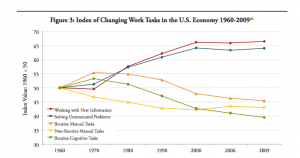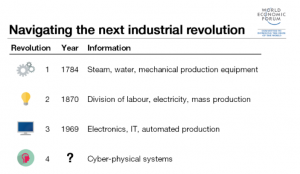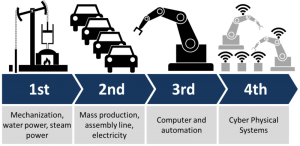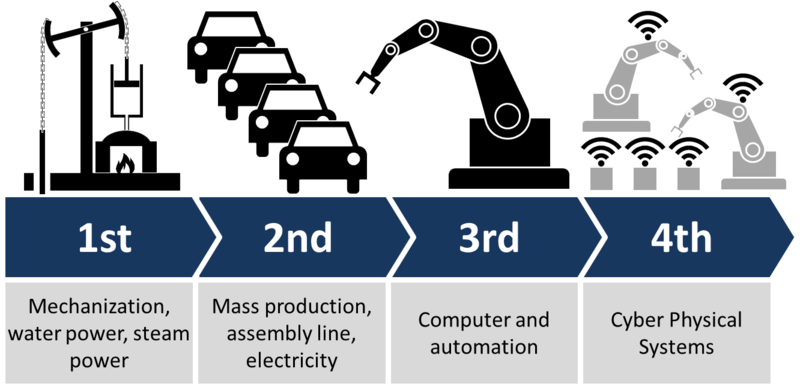 In a 2003 paper about the changing task composition of the labor market, economists Autor, Levy, and Murnane explained that future jobs will require workers to obtain a new set of skills. To be successful in the new knowledge economy, our students will be required to utilize nonroutine cognitive capabilities that cannot be accomplished by a computer or robot. These new skills include problem-solving in novel situations, complex communications, and synthesizing information.
In a 2003 paper about the changing task composition of the labor market, economists Autor, Levy, and Murnane explained that future jobs will require workers to obtain a new set of skills. To be successful in the new knowledge economy, our students will be required to utilize nonroutine cognitive capabilities that cannot be accomplished by a computer or robot. These new skills include problem-solving in novel situations, complex communications, and synthesizing information.

Because of this shift in the required skill set, we must ask ourselves, “Are we preparing our students for the job
force they will enter when they leave our campus?” How do we prepare students for a 21st-Century world when they’re still being educated in an education model designed for a 20th-Century world? What can we do to ensure that our students are ready to enter their future world shaped by the 4th Industrial Revolution? Click here to watch a video to learn more about the 4th Industrial Revolution.

The presenter, Beth Holland, shared with attendees the difference between divergent thinking and convergent thinking, as coined by Joy Paul Guilford. Convergent thinking “generally means the ability to give the “correct” answer to standard questions that do not require significant creativity, for instance in most tasks in school and on standardized multiple-choice tests for intelligence.”
In order to examine these questions, we examined the tenets of successful systems and used the Science of Improvement. The three essential questions of improvement science that educators must ask when implementing change in schools are:
- What specifically are we trying to accomplish?
- What change might we introduce and why?
- How will we know a change is actually an improvement?
The six core principles of improvement from the Carnegie Foundations for the Advancement of Teaching are:
- Make the work problem-specific and user-centered
- Variation in performance is the core problem to address
- See the system that produces the current outcomes
- We cannot improve at scale what we cannot measure
- Anchor practice improvement in disciplined inquiry
- Accelerate improvements through networked communities.
Beth ended the session by asking us: How will you prepare your students for their future?

Leave a Reply
You must be logged in to post a comment.